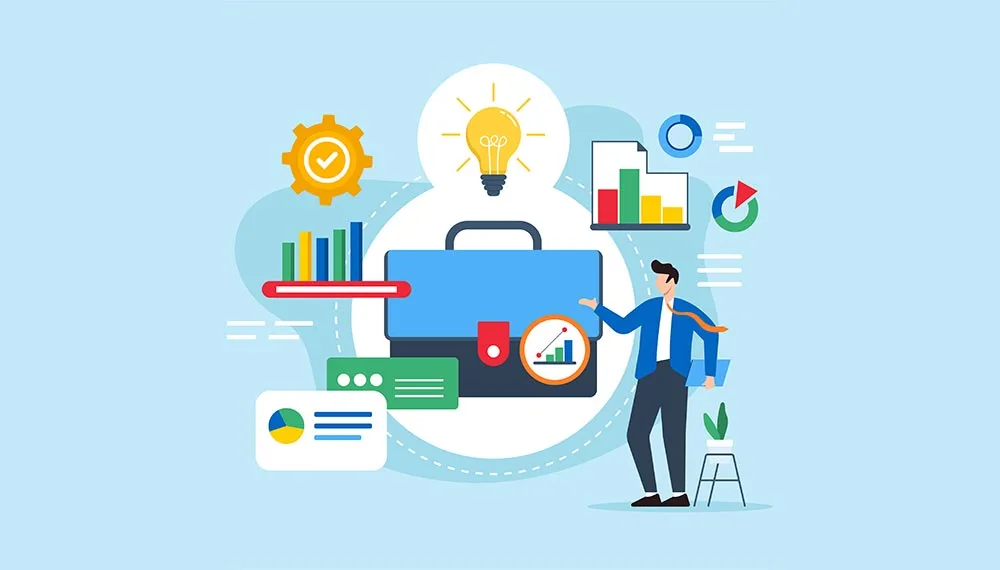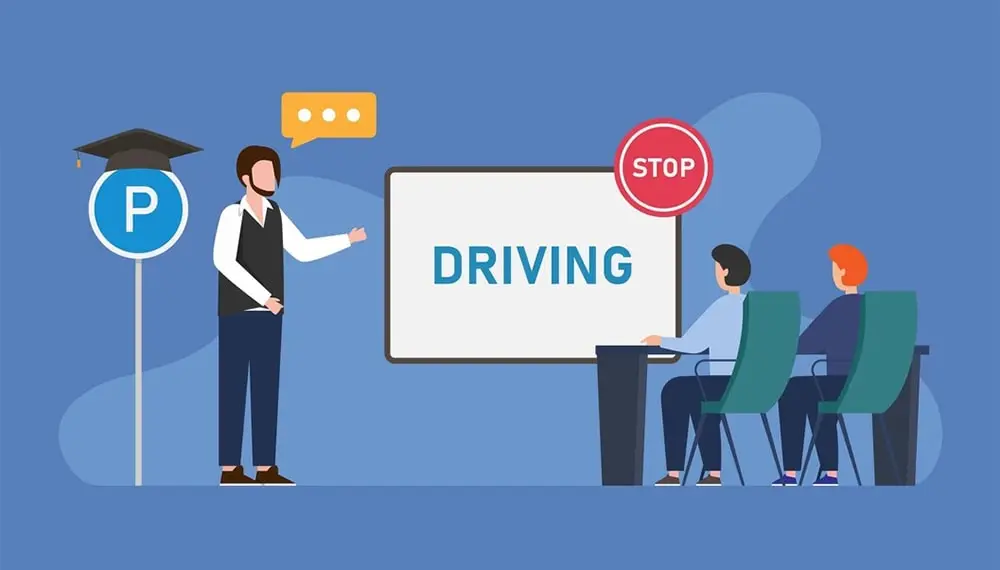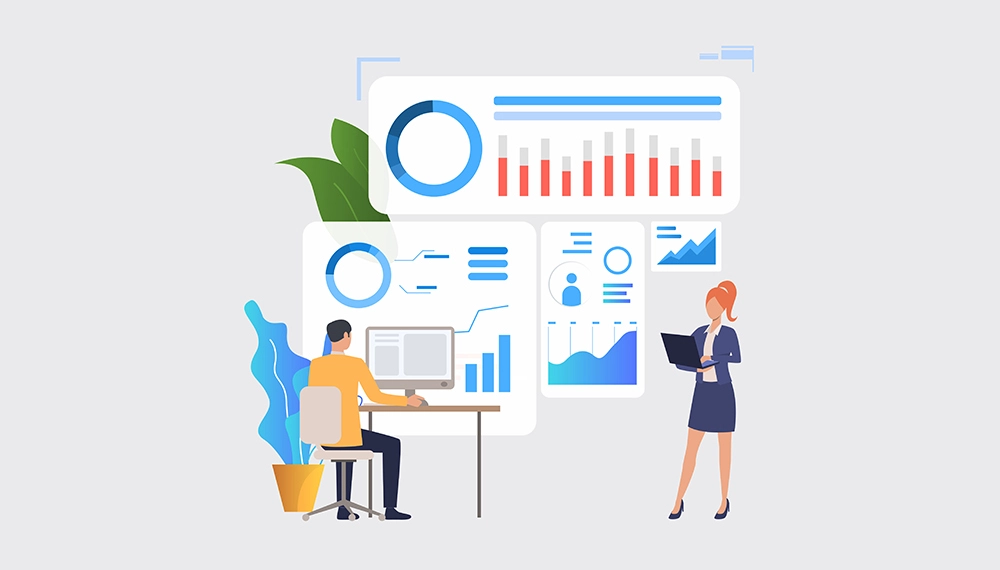In-Demand Skills for 2025 and How to Develop Them
Rohit Kumar
06 Feb, 2025

As we approach 2025, the evolving business landscape presents challenges and opportunities. This is a pivotal moment to assess and enhance the skills that drive innovation, efficiency, and long-term success. Embracing this period of change with a proactive mindset can position individuals and organizations alike to stay competitive and ready for the future.
Investing in skill development is not merely a response to market demands but a strategic move fostering growth, adaptability, and resilience. With rapid advancements in technology, shifting workplace dynamics, and increasing global competition, the skills that matter most are also evolving. You can ensure readiness for the changes ahead by identifying and cultivating these key competencies. Let's look at the in-demand skills for 2025 and how they will shape the future of work.
Essential Skills for 2025
According to LinkedIn's analysis of millions of job postings and professional profiles, the skills landscape is shifting rapidly as we move toward 2025. This analysis draws insights from LinkedIn's extensive global talent pool and reflects emerging trends across industries shaped by technological advancements, economic demands, and changing workplace priorities.
The findings underscore organizations prioritizing skills that blend technical expertise with human-centric qualities. These insights not only highlight the current gaps in workforce capabilities but also guide individuals and businesses to focus their upskilling efforts where they matter most. Let's look at these critical skills one by one:
1. Adaptability
The rapid pace of technological & organizational change demands flexibility. Employees who embrace change, learn new tools, and adjust their approaches can thrive in dynamic work environments. Adaptability enables individuals to navigate challenges, remain resilient, and contribute to business continuity.
2. Communication
Effective communication—both verbal and written—remains essential for workplace success. Clear communication fosters collaboration ensures ideas are understood and helps resolve conflicts. Strong communication bridges gaps between remote and in-person teams in a hybrid work setting, enhancing productivity.
3. Customer Service
Customer expectations are higher than ever, & delivering excellent service builds loyalty and retention. This skill includes listening to customer needs, solving problems efficiently, and providing a positive experience, which directly impacts business reputation and growth.
4. Leadership
Leadership goes beyond managing teams; it involves motivating, inspiring, & guiding others to achieve shared goals. Strong leaders drive innovation, foster trust, and create environments where individuals can excel, making it a critical skill for all levels of an organization.
5. Project Management
The ability to plan, organize, & execute tasks within deadlines is vital for driving initiatives to completion. Project management skills ensure resources are used efficiently, risks are managed, and business objectives are achieved on time and within budget.
6. Management
Effective management involves aligning resources, overseeing operations, and guiding teams toward success. It also involves decision-making, conflict resolution, and balancing short-term goals with long-term strategies to keep organizations on track.
7. Analytics
Data-driven decision-making is now indispensable. Analytical skills allow employees to interpret data, identify patterns, and draw actionable insights. Whether in marketing, sales, or operations, analytics enables smarter, more informed business strategies.
8. Teamwork
Collaboration is the cornerstone of modern workplaces. Working effectively in diverse teams, sharing responsibilities, and achieving collective goals is critical for organizational success, especially in global, cross-functional environments.
9. Sales
Sales skills remain essential for driving revenue and growth. Beyond direct selling, this skill involves understanding client needs, building strong relationships, and positioning solutions that deliver measurable value, making it relevant across industries.
10. Problem-Solving
Businesses face constant challenges, and problem-solving skills enable employees to approach issues logically, think critically, and develop creative solutions. Employees who can resolve challenges efficiently bring immediate value to their teams.
11. Research
Strong research skills allow individuals to gather and analyze information to make informed decisions. Whether evaluating market trends, exploring new technologies, or identifying solutions, research skills drive innovation and competitive advantage.
The First Step Toward Skill Development
Before developing in-demand skills, it’s crucial to identify where the gaps exist. Skill gaps occur when employees' competencies fall short of what is needed to meet business objectives or adapt to future demands. Start with a thorough skills assessment across your workforce. Tools like psychometric testing, competency mapping, and performance evaluations can pinpoint individual—and team-level gaps.
Analyzing these insights helps organizations focus on the skills most critical to their growth, ensuring training efforts are targeted and impactful. By understanding where employees stand now, companies can create tailored development plans that align with their strategic goals while empowering individuals to bridge gaps effectively.
Determining the Right Skills for Future Success
Identifying which skills will drive success in the future requires a strategic, forward-looking approach. Begin by aligning skill development initiatives with your organization's long-term goals and industry trends. Analyze emerging technologies, shifting customer demands, and evolving job roles to determine the competencies that will be most valuable.
Engage with leadership teams, assess current workforce capabilities, and leverage market data to identify gaps and future needs. Tools like skills assessments and workforce analytics can clarify the skills required to remain competitive. By proactively defining the right mix of hard and soft skills—like adaptability, leadership, and analytics—organizations can ensure their teams are prepared to thrive in a rapidly changing business environment.
Preparing for Growth Through Skills Development
As industries evolve, organizations must ensure their workforce remains equipped to tackle future challenges. Proactively investing in upskilling and reskilling initiatives creates an agile, adaptable team capable of driving innovation and staying competitive. A well-trained workforce leads to improved performance, greater employee engagement, and a stronger ability to respond to market shifts. Organizations prioritizing skills development position themselves for consistent growth while attracting and retaining top talent.
Organizations need the right tools to develop critical skills efficiently and at scale—this is where a Learning Management System (LMS) becomes essential. An LMS centralizes training resources, streamlines content delivery, and tracks progress, making skills development more accessible and measurable. It allows companies to design personalized learning paths, automate repetitive training processes, and provide on-demand course access. Whether addressing adaptability, communication, or analytics, an LMS delegates learners to learn independently while ensuring alignment with organizational goals. By integrating an LMS into their strategy, companies can foster a culture of ongoing learning & drive sustained growth.
Conclusion
The workforce of 2025 will require a careful balance of technical expertise and human-centric skills to navigate the complexities of a rapidly evolving business landscape. Identifying skill gaps, investing in targeted development, and leveraging tools like a Learning Management System (LMS) are critical to organizational growth and success.
Now is the time to act. Starting small, assessing current capabilities, and committing to continuous skills development will create a culture of learning and resilience. Organizations that take these steps today will lead the way tomorrow, equipped with a workforce ready to face challenges, seize opportunities, and drive sustained success.
Choosing the Right Partner for LMS Services
Selecting the right Learning Management System (LMS) partner is critical for organizations looking to develop in-demand skills and drive growth. At Core Competency, our LMS is designed to empower organizations with scalable, user-friendly, and results-driven solutions.
We offer features like customized learning paths, robust analytics, seamless integrations, and automated workflows to streamline skills development across your workforce. Our platform ensures employees can access personalized training anytime, anywhere maximizing learning efficiency and aligning outcomes with business objectives.
By partnering with Core Competency, you gain a proven LMS solution that simplifies training management, enables continuous learning, and prepares your teams for the future. Equip your workforce with the tools they need to thrive and drive your organization into 2025 and beyond.




